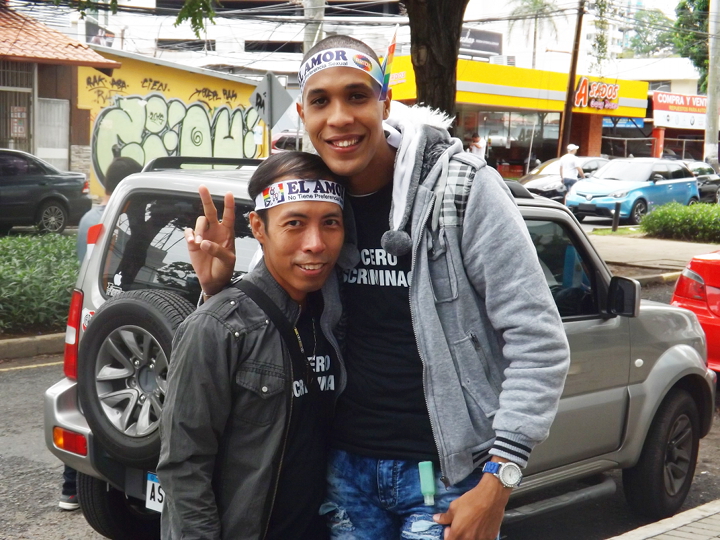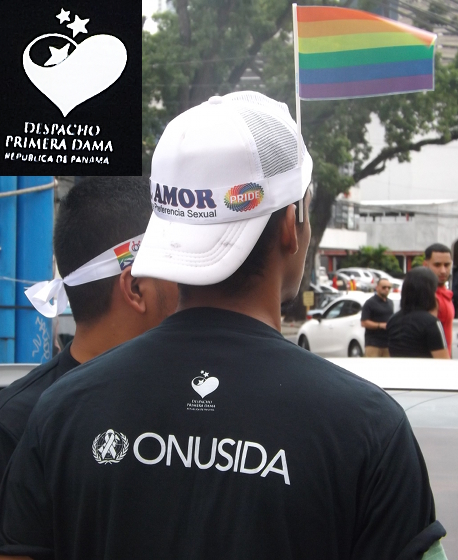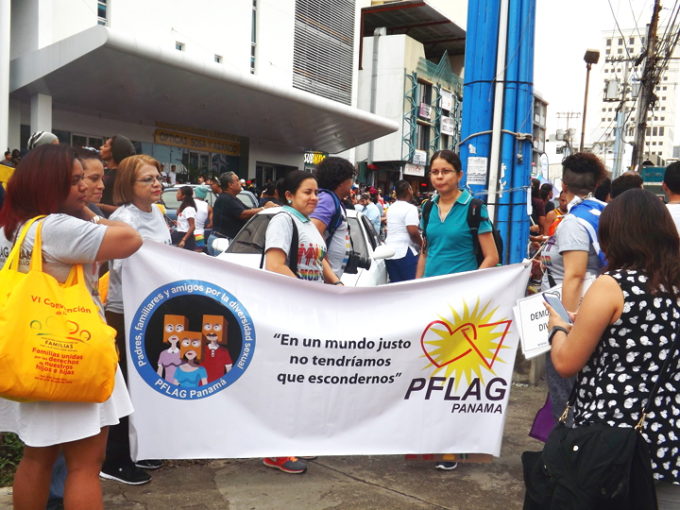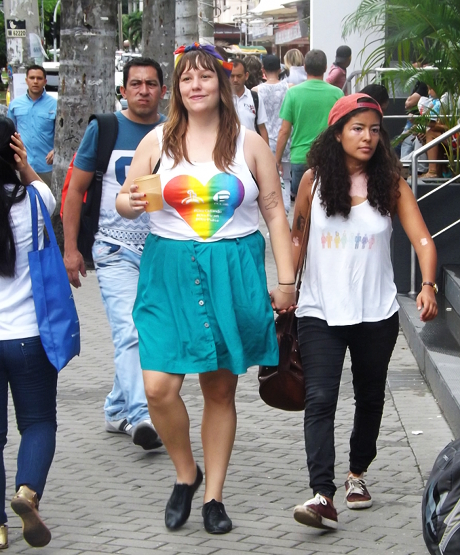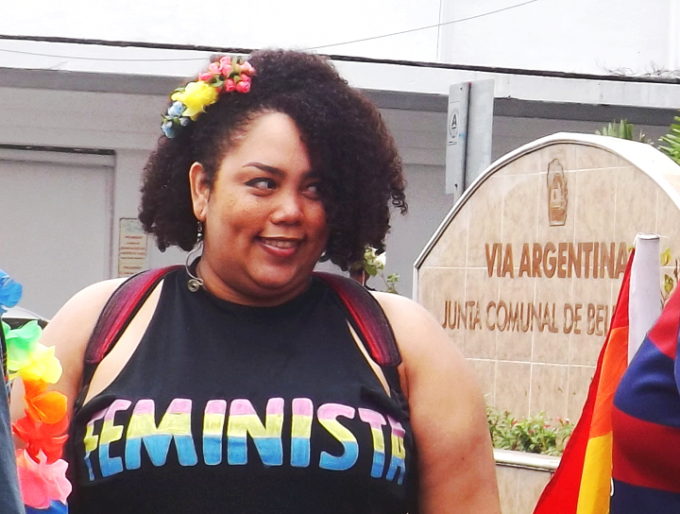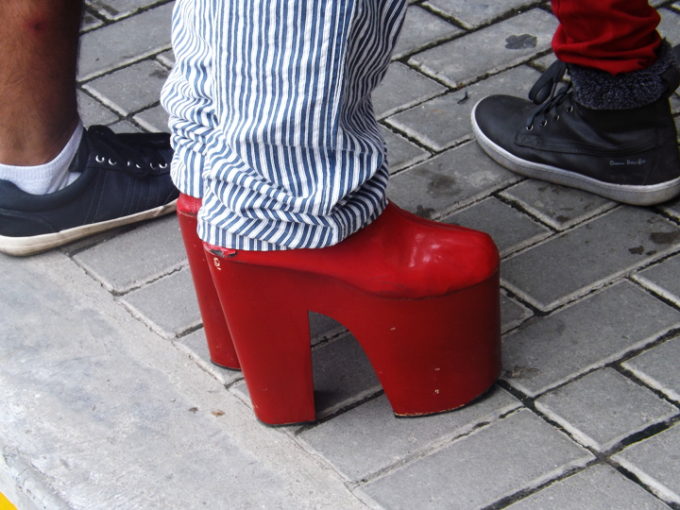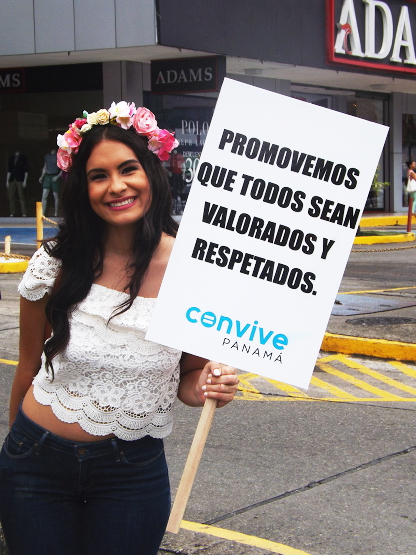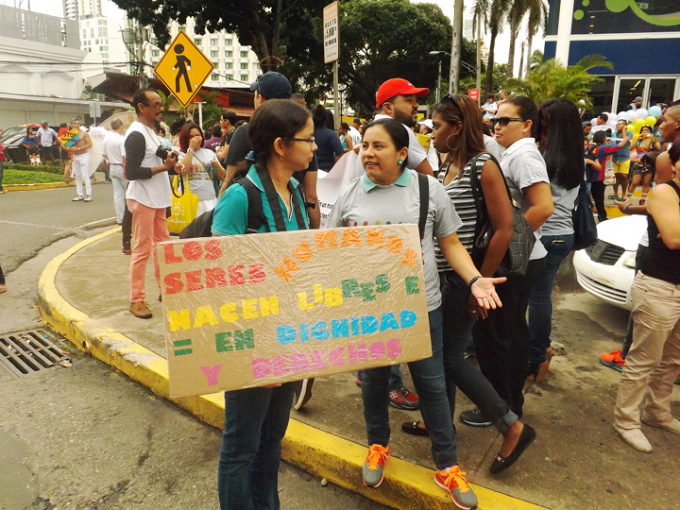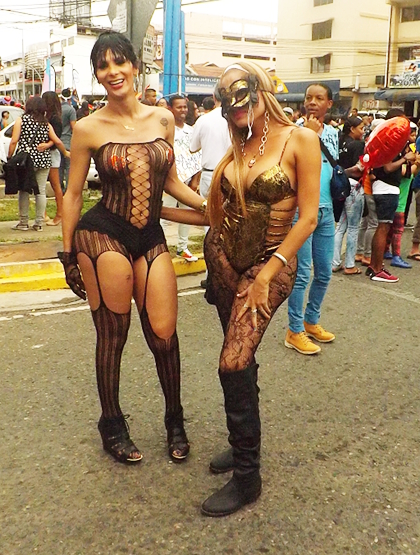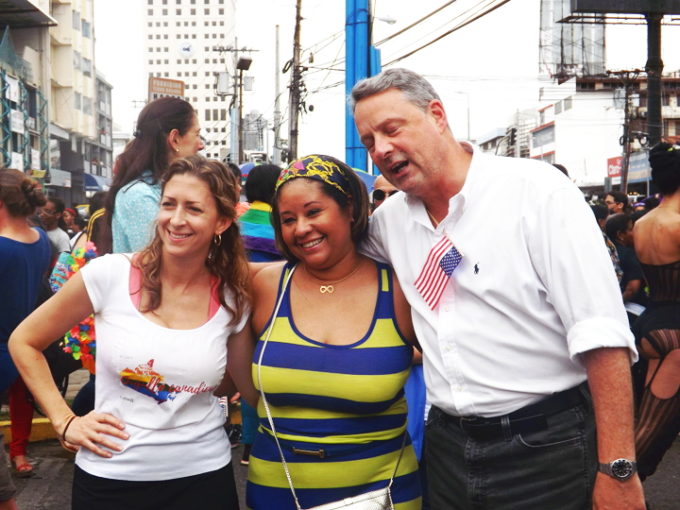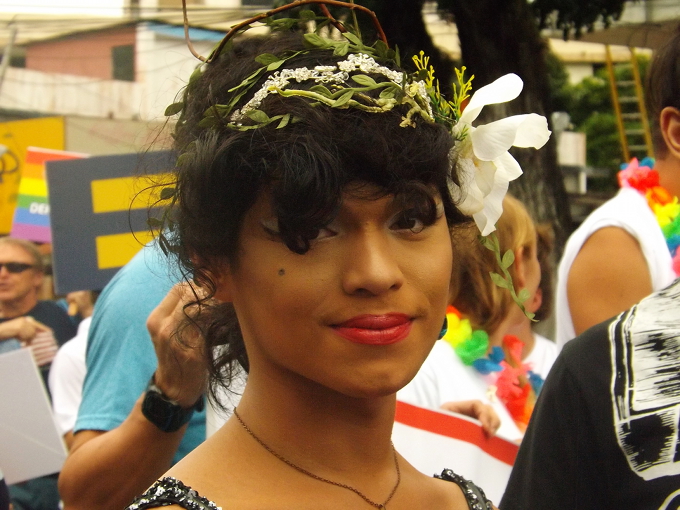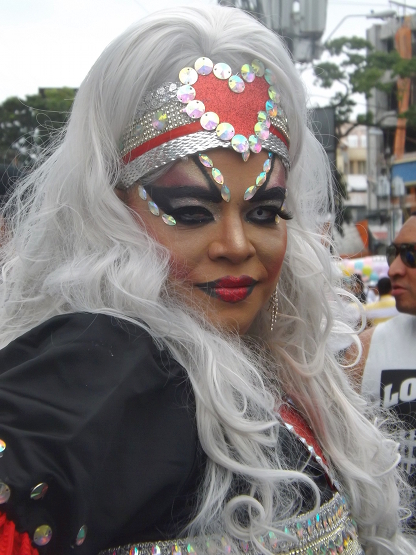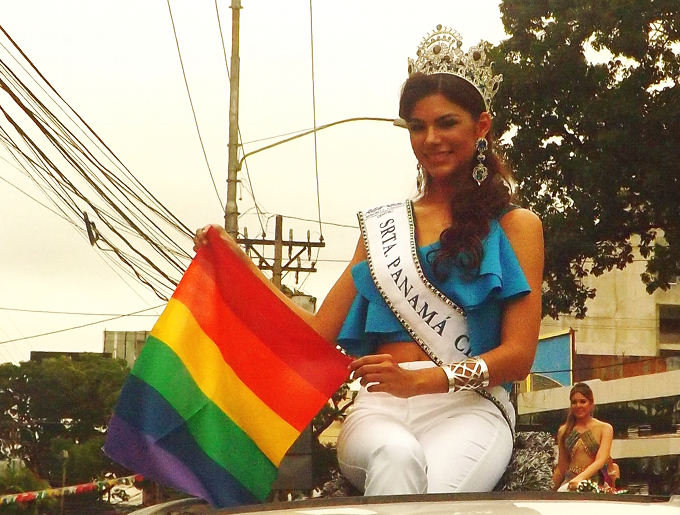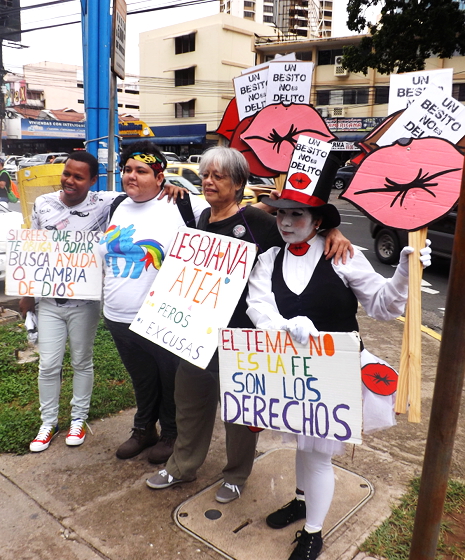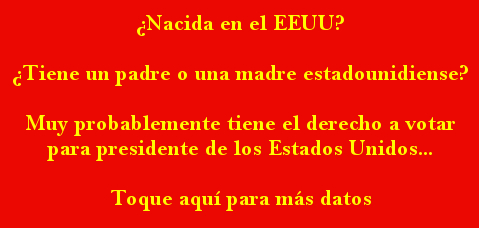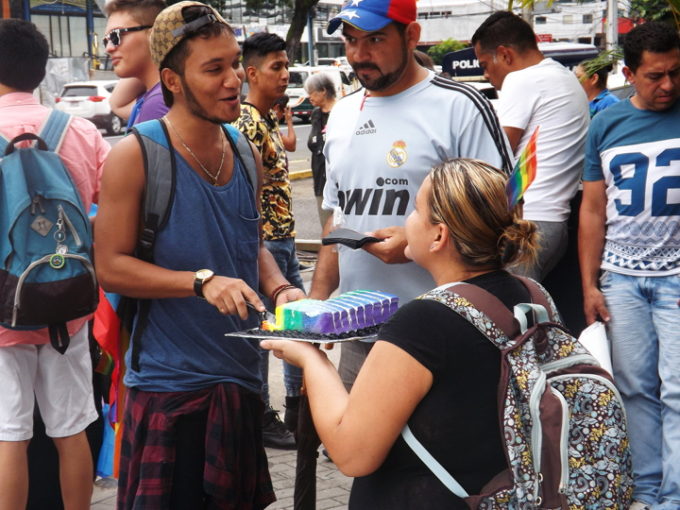
Panama Pride 2016: into the mainstream
photos and note by Eric Jackson
The most noteworthy novel feature of this year’s Pride march was the proliferation of participants who were there as part of their job. As in years past, there was a large US Embassy contingent, which this year was also joined by a contingent of Canadian diplomats and some other foreign emissaries on their own personal accounts. As before, the Joint United Nations Program on HIV/AIDS (UNAIDS) was present, this time passing out T-shirts bearing in tiny print on the back the imprimatur of Panama’s first lady’s office. But the corporate presence we hadn’t really seen before. There were contingents from Dell, which runs a call center and sells computers here; Proctor & Gamble, which moved its regional headquarters here from Venezuela a few years back; the Uber transportation service that so annoys the taxi syndicates and Caterpillar, which has a regional sales office here and did really well at the business of providing equipment for the canal expansion.
The originator of Panama’s Pride celebrations, the Association of New Men and Women of Panama (AHMNP), had pride of place with its banner out front but its most recognizable leader, Ricardo Beteta Bond, kept himself out of the spotlight as the marchers were gathering and several other activist and community contingents seemed larger than the AHMNP’s. The commie radicals from FAD marched and the National Strategic Alliance had a banner, but the day’s most noteworthy militant faction was that of the atheists and agnostics.
This year we didn’t see the mayor carrying a rainbow flag, but we may well chalk up the absence of elected officials to an enhanced and generalized public annoyance with the political caste at the moment, which keeps politicians of all factions from showing their faces at all sorts of public events. As in past years the Balboa Union Church was there, along with the APLAFA family planning group. All of the queens were not transgendered persons or men in drag: leading the contingent of “straight” beauty queens was Her Majesty Rosario Mayela from Calle Arriba in Las Tablas.
There were fewer stares of shock, hatred, fear or bewilderment than in years past, and this reporter heard no taunts and saw no overt expressions of opposition. A policewoman in the contingent protecting the march pulled out a cell phone to take a snapshot as the march was about to begin, and it seemed far more likely to be a personal record to show family and friends how she spent that Saturday afternoon than a datum destined for a National Police subversives file. See, Panama is beginning to get it. What was once seen as a freak show is now given its due as a civil rights march, and is seen by business interests as an important part of the Panamanian market.
